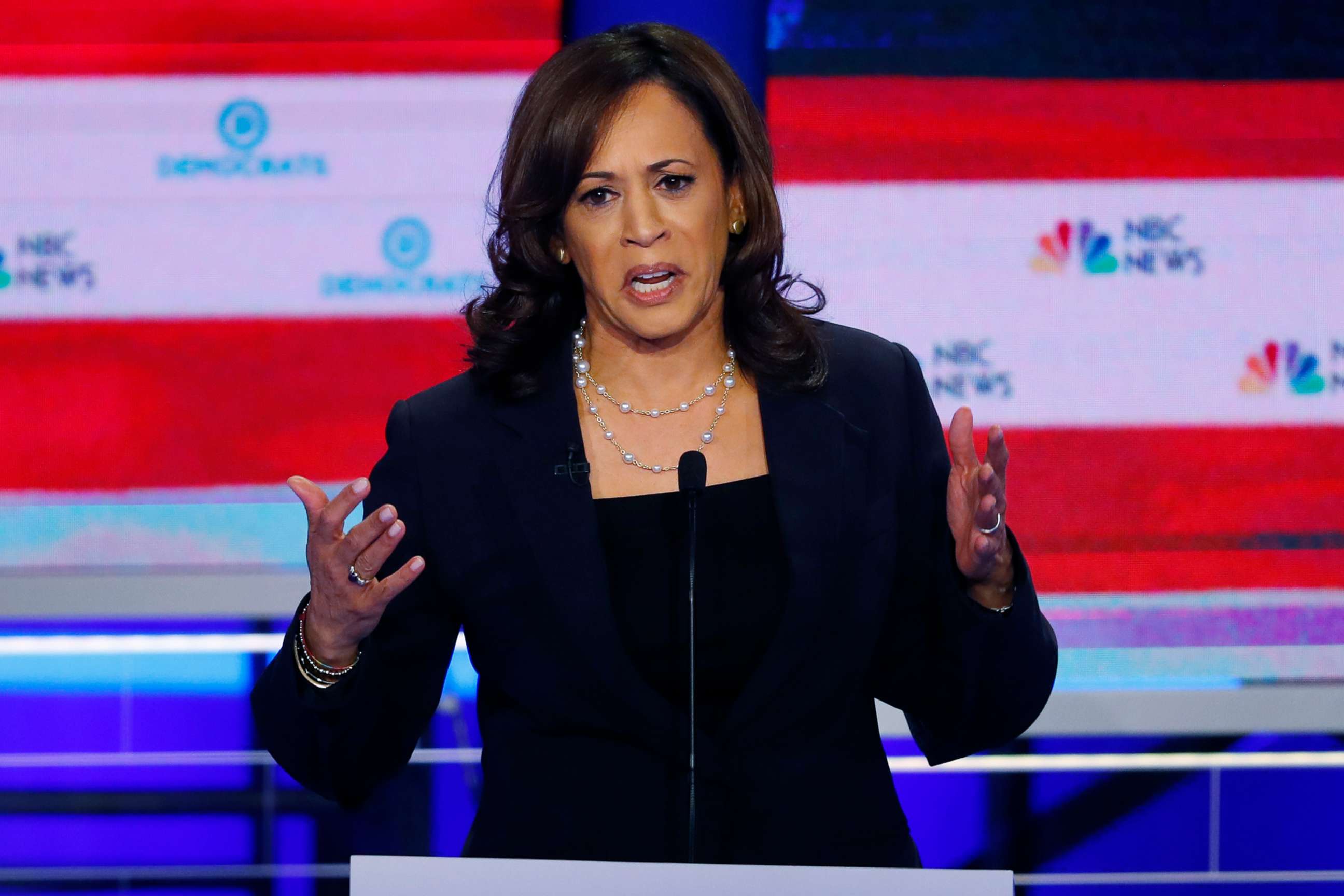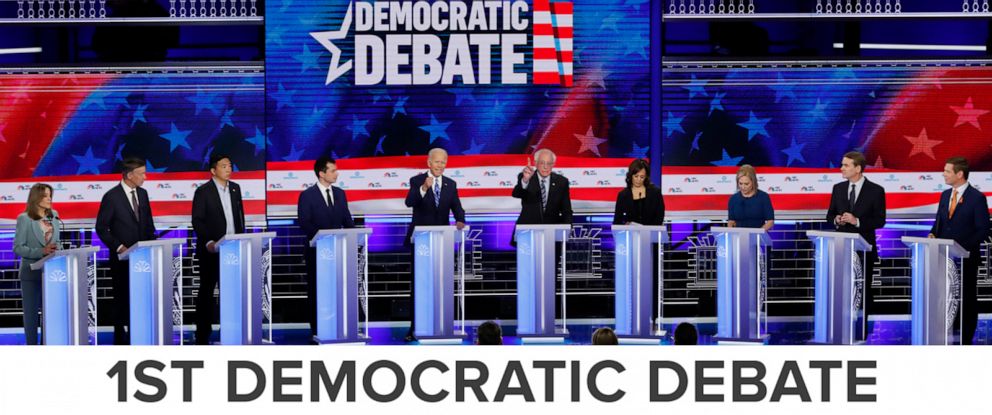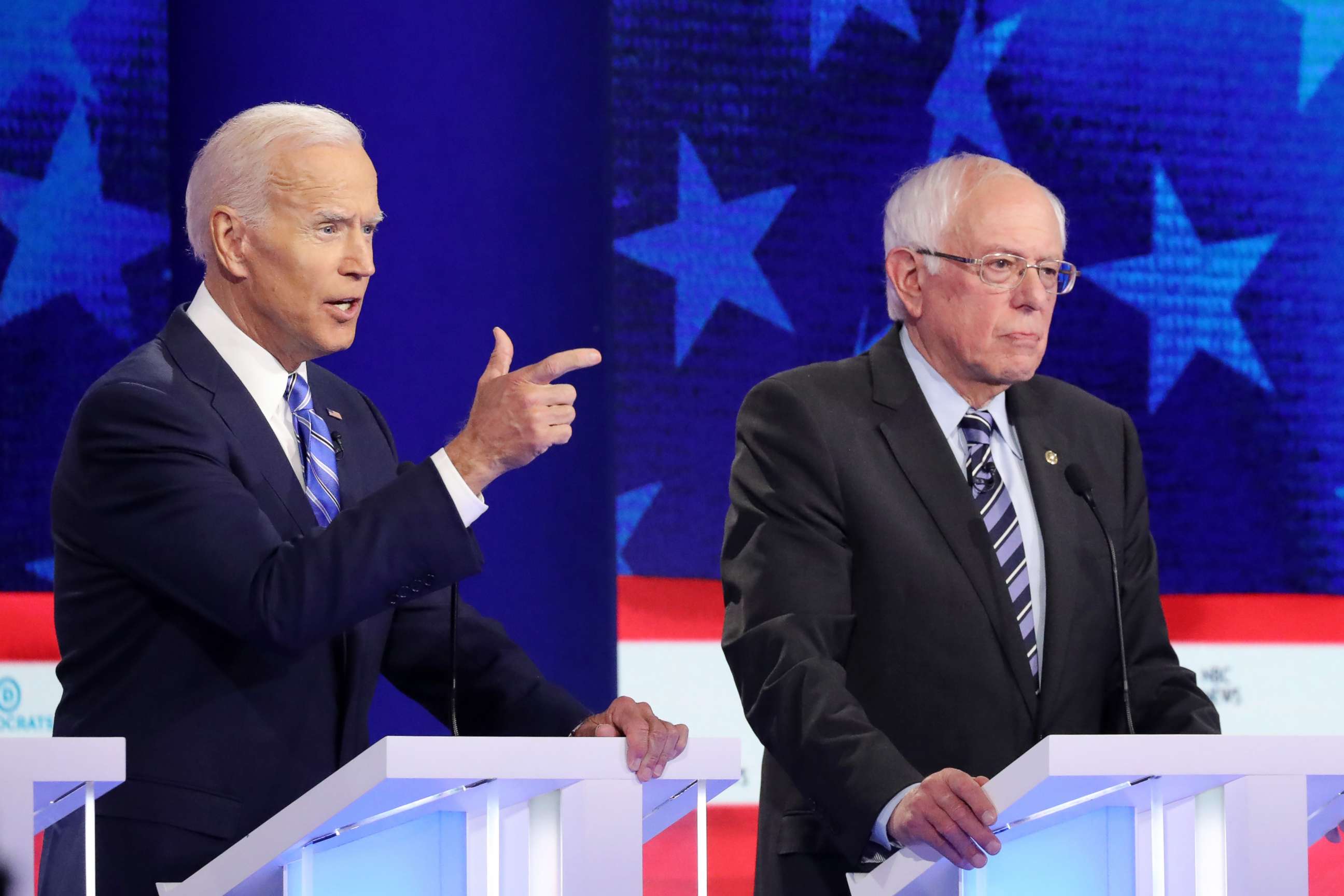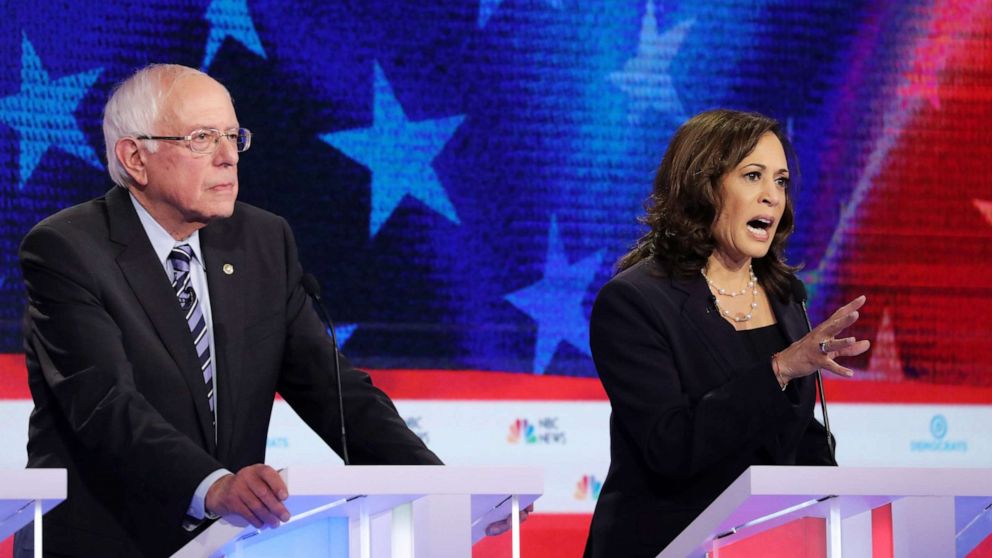Harris soars at debate as Democrats’ fault lines trip up Biden: ANALYSIS
MIAMI -- From their center stage perches, both former Vice President Joe Biden and Vermont Sen. Bernie Sanders did their best Thursday night to rise above the attacks — both direct and veiled — launched by their rivals.
That didn’t quite work.
A feistier second debate night revealed critical fault lines inside the Democratic Party on issues of race, immigration, health care and even the Obama legacy — suggesting bigger fights ahead, as well as one notable candidate who offered a potential avenue around them.
California Sen. Kamala Harris, who is African American, insisted on the opportunity to talk about race in America to directly challenge Biden on comments he made talking up long-ago political partnerships with segregationist senators.
“It's personal and it was hurtful to hear you talk about the reputations of two United States senators who built their reputations and careers on the segregation of race in this country,” Harris said. “It was not only that, but you also worked with them to oppose busing.”
It was a startling exchange that seemed to silence the room. Biden was left on the defensive and delivered an answer he seemed glad to see his time expire on.

“It’s a mischaracterization of my position across the board. I did not praise racists,” Biden countered. “I did not oppose busing in America. What I opposed is busing ordered by the Department of Education.”
Separately, California Rep. Eric Swalwell, who is 38, went directly at Biden early on to argue that it’s time for a youth takeover: “Joe Biden was right when he said it was time to pass the torch to a new generation of Americans — 32 years ago. He is still right today.”
Biden, who is twice Swalwell’s age, countered: “I’m still holding on to that torch — I want to make clear to you.”
Moments later, as the debate devolved into crosstalk, Harris sought to bring the field together: “America does not want to witness a food fight. They want to know how we’re going to put food on their table.”
It was one of a series of passionate exchanges involving Harris. As former Housing and Urban Development Secretary Julian Castro did a night earlier, she expressed outrage about the current situation on the border, attacking Trump as “not reflective of our America and our values” and also criticizing former President Barack Obama’s administration for its deportation policies.
“On this issue, I disagreed with my president because the policy was to allow deportation of people who by ICE's definition were non-criminals,” Harris said.
Biden defended the strides made to change immigration policy under the Obama presidency: “We all talk about these things,” Biden said. “We did it. We did it.”

The candidates tangled over the advisability and feasibility of single-payer health care. Harris and Sanders were the only two candidates to raise their hands to commit to policies that would “abolish” private insurance..Sanders, as he’s done before, acknowledged that middle-class families would pay higher taxes to achieve “Medicare for all”: “Yes, they will pay more in taxes, but less in health care for what they get.”
That in part inspired a warning from former Colorado Gov. John Hickenlooper, who offered a jab at Sanders — a self-described “democratic socialist”: “If we don’t clearly define that we are not socialists, the Republicans are going to come at us every way they can and call us socialists.”
While some candidates sought to claim the center, the party’s leftward movement was evident. All 10 candidates raised their hands to say they would support health coverage for undocumented immigrants, though several appeared to hesitate before doing so.
It was a moment President Donald Trump noticed all those hands in the air: “How about taking care of American citizens first!? That’s the end of that race!” he tweeted.
Biden acknowledged that such a policy change would go further than current law, under the Obamacare legislation he helped champion.
“It’s the humane thing to do,” he said. “It’s just got to get taken care of. Period. You have to.”

As in the first night, more time was spent going after Trump than those on stage. But raw issues inside the party and society came repeatedly to the fore.
South Bend, Indiana Mayor Pete Buttigieg was rarely in the middle of the action during the debate. But he expressed sorrow that he wasn’t able to hire more black police officers or prevent a police-involved shooting of a black man in his home city of South Bend, Ind. — referencing a “wall of mistrust” between some African-Americans and police.
“I couldn’t get it done,” he said. “It’s a mess. And we’re hurting.”
The frontrunner-loaded second debate night reflected oddities in the current campaign reality. A party bursting with young, diverse energy has two white men in their 70s standing as frontrunners — with plenty of candidates who want desperately to do something about it.
New York Sen. Kirsten Gillibrand took a veiled shot at Biden over the Hyde Amendment, a longstanding policy that prevents federal tax dollars from directly funding abortions. Biden, until just a few weeks ago, supported that policy.
“When the door is closed and negotiations are made, there are conversations about women's rights and compromises have been made on our backs,” Gillibrand said. “That's how we got to the Hyde Amendment.”
Late in the debate, Sanders reminded voters that Biden voted for the Iraq War: “Joe voted for that war, and I happened to lead the opposition to that war,” he said.
Biden hasn’t been looking for fights early on in the campaign. But his rivals are starting to seek them out — and even his close association with Obama doesn’t look like enough to inoculate him from intra-party criticism.




